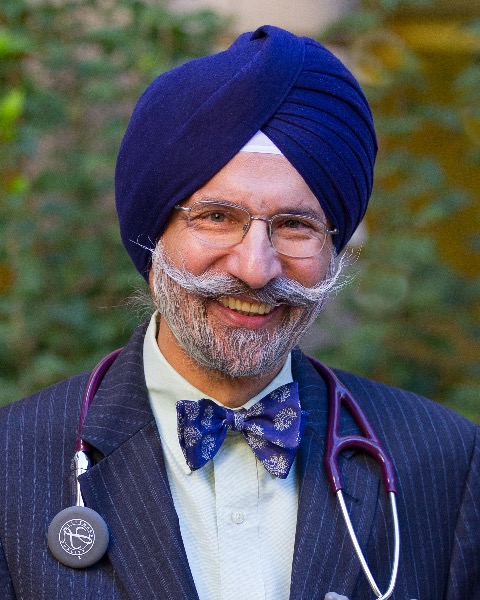Child Abuse & Neglect
Developmental and Behavioral Pediatrics
Diversity, Equity, and Inclusion
Epidemiology
General Pediatrics
Health Equity/Social Determinants of Health
Immigrant Health
Public Health
Wellness and Well-being
The Social Ecology of Early Childhood and Pathways to Child Wellness
Co-sponsored By: ISCHE
-

Kanwaljeet Anand, MBBS, D.Phil. (he/him/his)
Professor of Pediatrics, Anesthesiology, Perioperative & Pain Medicine
Stanford University
Stanford, California, United States
Chair(s)
Session
Description: Early life experiences, both adverse and positive, impact children’s development and lifelong health. In particular, children from economically or socially stressed families (that struggle to prioritize nurturing care) may experience Adverse Childhood Experiences (ACEs). These children accumulate increased allostatic load and develop stress dysregulation, often termed toxic stress (TS), which disrupts the prefrontal control of emotional and stress-reactive systems. TS is linked to developmental, physical, and mental health problems like obesity, asthma, cardiovascular disorders, anxiety, depression, and learning difficulties. Multiple lines of evidence suggest that positive childhood experiences (PCEs) can mitigate the impact of ACEs and confer stress resilience, associated with long-lasting promotion of positive health outcomes.
The social ecology of early childhood results from parenting, family, and community factors, with ACEs and PCEs interacting to determine a child’s early relationships, communication, and self-identity. These influence their ability to learn, form healthy relationships, and make positive lifestyle choices, which progressively translate into physical, mental, social, and relational health outcomes, including socioeconomic status. Using the theories related to early child development, this session will map the salient pathways from early childhood experiences to family-focused and community-engaged preventive and/or therapeutic approaches, as well as the policy interventions designed to promote healing and wellness. Physicians caring for children, including general pediatricians and specialists, can elicit histories of strengths and risks, model relational health, and work with children and families to engage the effective clinical processes, referral networks, community services, and evidence-based best practices that guide these families along the pathways to childhood wellness.
Learning Objectives:
- ...summarize the science of adverse and positive childhood experiences, to advance integrated systems of care providing the social supports essential for family/child flourishing and resilience.
- …outline a public health and community framework for incorporating the lifespan effects of these early childhood exposures embedded within the context of children’s developmental goals.
- …define the most effective clinical protocols, referral processes, community services, and sustainability models for addressing the physical and mental health consequences of early life adversity.
Presentations:
-
2:00 PM - 2:15 PM ETMechanisms connecting the Social Ecology of Childhood with health outcomes across the lifespan
Speaker: Kanwaljeet J. S. Anand, MBBS, D.Phil. (he/him/his) – Stanford University School of Medicine
-
2:15 PM - 2:35 PM ETIntegrated Systems of Care and Policy Frameworks needed for child flourishing and family resilience
Speaker: Christina D. Bethell, PhD, MBA, MPH (she/her/hers) – Johns Hopkins Bloomberg School of Public Health
-
2:35 PM - 2:55 PM ETHealthy Outcomes from Positive Experiences (HOPE): A community-engaged public health initiative
Speaker: Robert Sege, MD PHD (he/him/his) – Tufts University School of Medicine
-
2:55 PM - 3:15 PM ETMoving beyond PEARLS: Toward sustainable models for addressing Early Life Adversity
Speaker: Neeta Thakur, MD MPH (she/her/hers) – UCSF
